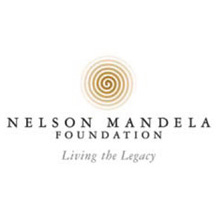
November 27, 2009 – The Head of the Nelson Mandela Foundation’s Memory Programme, Verne Harris, presented his paper “Mystery and Machination in the Archive” to the Nordic Documentation Project Concluding Workshop today.
Organised by the Nordic Africa Institute, the workshop was a two-day event held at the University of South Africa’s Sunnyside campus in Tshwane. It focused on archival and historiographical work that has been done on the liberation movements in Southern Africa.
“The Norwegians have been funding archival and historiographical projects for years and this workshop is a review of the work that has been done on the liberation movements in Southern Africa,” said Harris. “I was invited in my capacity as the Head of the Memory Programme because of the work we are doing in documenting struggles for justice.”
Explaining his paper, Harris says he is “acknowledging what has been accomplished, but at the same time looking for the areas which have been neglected thus far”.
“Many, many individuals have not been woven into the tapestry of the story about the liberation struggle in Southern Africa,” he says. “I’m trying to get underneath those absences. Why, for example, are the voices of women still being marginalised?”
Harris says his paper examines three major areas of weakness in post-apartheid archival work in South Africa.
“These are areas of what I would call spectrality,” he says. “Areas in which we hear the ghosts of those excluded.”
The first of those areas, explains Harris, is the lack of serious engagement with indigenous ways of archiving.
“We still talk about documents and film and recorded interviews, but we’re not actually opening the doors to African ways of recording, sharing and living story.
“The second is that we haven’t yet subverted the discourse we inherited from the apartheid era. We’ve done really well in reading the colonial archive in liberatory ways and in understanding how an archive is always a construction, a mode of making sense of lived reality – but we haven’t begun to do that with the liberation archive.
“We’ve been building the liberation archive, but we haven’t been asking ourselves the tough questions.”
The third aspect of Harris’s paper looks at power.
“We’ve been naive in understanding power. We’re still caught up in this reductionist notion of power. Power that oppresses and power that liberates are always intermingled. We need to problematise this area.
“We’ve generated new meta-narratives – the glorious liberation struggle, the miracle of reconciliation, the “New South Africa”, and so on – but we haven’t opened these up to scrutiny to determine the power dynamics at play.”